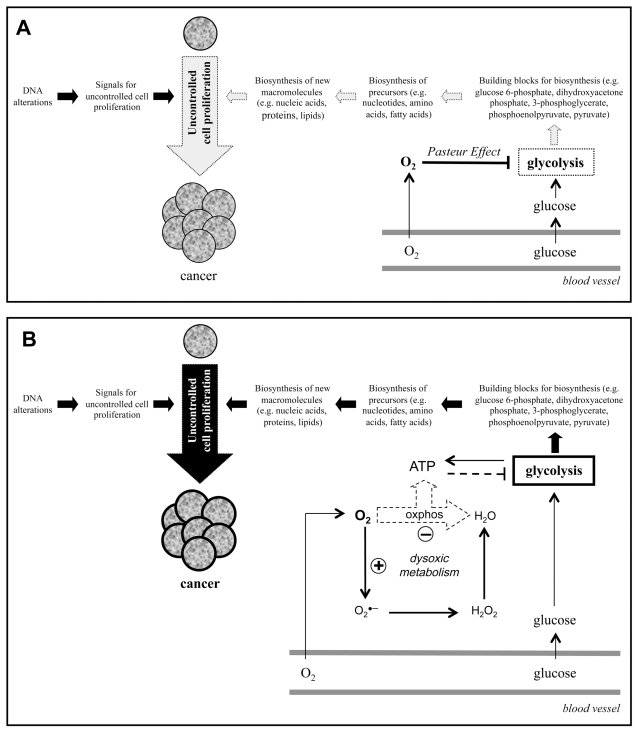Figure 1.
Cancer development requires both the acquisition of DNA alterations and a change in the metabolism of oxygen (dysoxic metabolism). (A) The uncontrolled cell proliferation that characterizes cancer requires signals for cell proliferation and the synthesis of new macromolecules (for example, nucleic acids, lipids, proteins). Glycolysis provides building blocks (for example, glucose 6-phosphate, dihydroxyacetone phosphate, 3-phosphoglycerate, phosphoenolpyruvate, pyruvate) that participate in the synthesis of these macromolecules. The presence of O2 can inhibit glycolysis (Pasteur effect) and, therefore, the biosynthesis of new macromolecules required for the uncontrolled cell proliferation that characterizes cancer. (B) A change in the metabolism of O2 (dysoxic metabolism) would allow the activation of glycolysis in the presence of O2 and, therefore, cell proliferation and cancer development.

